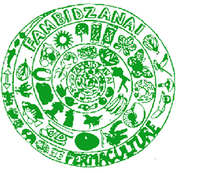Consultancy to conduct end of project evaluation for the Transforming and Strengthening Agricultural Extension Services on Agroecology in Zimbabwe
Job Description
1. Introduction
Fambidzanai Permaculture Training Centre (FPTC) is a Zimbabwean registered non-governmental organisation (PVO 12/92) whose focus is to develop the capacity of marginalised communities along the principles and practices of permaculture and Agroecology. FPTC was established in 1988 as the first institute of its kind in Southern Africa; carrying out trainings in organic farming and other sustainable agriculture systems. The institution is renowned as a centre for organic farming and agroecology training across the country and the region. FPTC pioneered the establishment of an agroecology curriculum at both certificate and diploma level and working as an affiliate of Bindura University of Science to offer such an important program that has so much value to agriculture development in Zimbabwe and in the region at large.
2. Project Background
With the support from Bread for the World, FPTC has been implementing a 3 year program (August 2021 to July 2024) dubbed Transforming and Strengthening Agricultural Extension Services on Agroecology in Zimbabwe (TSASAZ III) whose main aim is to improve household food security among smallholder farmers through access to agroecology extension support. It was guided by the following specific objectives.
• Farmers have improved access to information on agroecology.
• The small holder farmers reached through the project have been strengthened in their resilience.
The project focused on enrolment for extension officers on an in-service special certificate training programme and a diploma in agroecology program to facilitate knowledge and skills transfer to rural communities where they work. The project consisted of a number of initiatives embedded in the concept such as use of media as an extension tool and enterprise support to try and ensure achievement of the overall development goal. The program targeted 505 extension officers for capacity building through certificate and diploma with representatives from across all the provinces but with much project focus on, Manicaland, Mashonaland East and Masvingo. The enrolment and program implementations has been through support of various actors such as Bindura University Faculty of Agriculture, Ministry officials in the Ministry of Agriculture, Agriculture and Rural Development Advisory Services (ARDAS) formerly known as AGRITEX from grassroots to national level, Chinyika Community Development Trust in Masvingo, Chikukwa Ecological Land Use Community Trust (CELUCT) and Towards Sustainable Use of Resources Organization (TSURO) in Manicaland and Zimbabwe Smallholder Organic Farmers Forum (Zimsoff) in Mashonaland East . We have worked with 2 radio stations to reach out to farmers and share information on agroecology namely Hevoi FM in Masvingo and Diamond FM in Manicaland with a total estimated reach of more than 1million through listenership. In addition, the program also aimed at supporting a total of 36 farmer groups from across the country on selected enterprise such as indigenous poultry, traditional grains, beekeeping and fisheries.
This is thus a call for an impact evaluation meant to reflect on the extent to which the project has managed to achieve the set objective and the overall development goal against the initial baseline. The evaluation will primarily focus on tracking the following indicators as outlined in the approved project documents and reports:
✓ At least 75% of smallholder farmers confirm that the trained extension workers provide a majority of agroecological information as compared to conventional agriculture.
✓ At least 70% of the feedback received from listeners to the radio session is positive feedback.
✓ At least 75% of the smallholder farmers reached by the trained extension workers adopted at
least 8 pre-defined agro-ecological practices (based on FAO TAPE standards of assessment of
agroecology practices).
✓ At least 80% of the households obtain a Satisfactory Household Dietary Diversity Score (i.e.
they have consumed 5 or more food groups in a 24hr period).
✓ At least 70% of the community enterprise initiatives are profitable.
Duties and Responsibilities
Scope and Purpose of End of Project Evaluation
The purpose of the end of project evaluation is to make an overall independent assessment of the successes, challenges, failures and lessons learnt from the Transforming and Strengthening Agricultural Extension Services on Agroecology in Zimbabwe (TSASAZ III).
The end of project evaluation is mainly guided by the overall goal of the project, the project objectives and indicators as outlined in the respective project documents.
The consultant/consultancy team should be guided, but not limited, by the evaluation matrix below to analyse and synthesize key evaluation elements.
Table II: Evaluation matrix table
Focus Area Description
Relevance /Project Design
The extent to which the project's aims aligned with the needs of recipients, the country, FPC's vision, and the strategic plans of financing partners.
Guiding Key Questions
• To what extent does the programs (certificate and diploma in agroecology) meet the needs of extension officers and other farmers?
• Does the project align with the overall vision of the principals in the ministry and government in general?
Is the project's strategy the most effective way to promote agroecology education and extension?
• How could the project's capacity building and supporting components be tweaked to make it more relevant and appealing to the extension officers, other students, and small holder farmers?
Effectiveness
The extent to which the project’s results were attained, and the project’s specific objective(s) achieved, or are expected to be achieved.
• Has the proposed theory of change been realized?
• Have the set project targets and the different project indicators been
achieved as planned?
• To what extent have the project-supporting initiatives such as enterprise
development been effective in facilitating the achievement of the overall goal of the project?
Efficiency
The quality of operational work, planning, and implementation from financial lenses in relation to the achieved project results and the impact thereof. (outputs delivery, cost control, management of personnel, information, and property)
• Was the project implementation guided by concepts of value for money?
• The approaches used in the project were they the best for the specific
task?
• What were the key lessons from the project implementation that future
projects can draw from?
• Are the extension officers the best target group for certificate training as
compared to other potential target groups such as lead farmers?
• Was the project well-resourced for the tasks?
• Was the bursaries a necessary expense for the different target groups and
if so, were the amount was adequate?
Impact
The extent to which the project and its theory of change have contributed to the attainment of the overall development goal, including unintended or unexpected impacts, positive or negative.
• Has the project managed to significantly improve the agroecological practices among farmers working with trained extension officers?
• What has been the impact of the project on specific marginalized groups in communities such as women and children?
• Is the information extended to farmers on agroecology through different platforms relevant and useful for the improvement of their livelihoods and food security?
• To what extent does radio as an extension tool influence the farmers' practices on-farm?
Qualifications and Experience
6.0 Consultant Qualifications
The consultant/consultancy team should possess the required expertise and relevant experience in designing and execution of a comprehensive and robust research design that is in synch with research best practice and ethics. The composition of the survey team is at the discretion of the consultant, based on their internal systems and logical mode of operation. However, it is recommended that the team comprises of one broadly experienced research expert, i.e. Lead Researcher to coordinate the overall survey and liaise with School of agroecology Team Leader. For data collection in the field, an adequate number of enumerators should be deployed.
The consultant, either as an individual or group of individuals, must demonstrate the following essential qualifications:
❖Team leader/Lead Researcher should possess a Masters or higher degree/qualifications in Social Sciences, Development work, Agriculture Extension, Operations Research and Statistics, or related field with at least 5 years’ experience conducting similar studies.
❖ Possess at least a degree in agriculture, agriculture economics or a related discipline.
❖ Have at least 5 years of relevant experience of consultancy, some of which should ideally
focus on agriculture extension, agroecology and sustainable agriculture production systems
and rural development sectors.
❖ At least 5 years’ experience in qualitative and quantitative research; clear understanding of
research methodologies and experience using different social research tools and techniques.
❖ Work experience in rural areas of the country will be an added advantage.
❖ Detail-oriented and self-motivated.
❖ Positive attitude, team player, able to work directly with clients and able to work and deliver
quality work under tight deadlines.
❖ Able to communicate effectively in English. Shona and Ndebele are a strong advantage
❖ For consultancy team, it is encouraged to have a gender balanced team.
How to Apply
Similar Listings

Call for Expression of Interest Consultant to conduct a Rapid Assessment of the market landscape and suppliers of climate change adaptation solutions in Zimbabwe Simbiso Project
Oxfam — Harare

Supplier Listing 2026
Unknown — Unknown

Request for Quotations: Supply and Fix of Isuzu KB300 Engine
Transparency International Zim — Harare

Location: Harare
Company: Fambidzanai Permaculture Training Centre
Expiry Date: 2024-01-28 00:00:00
